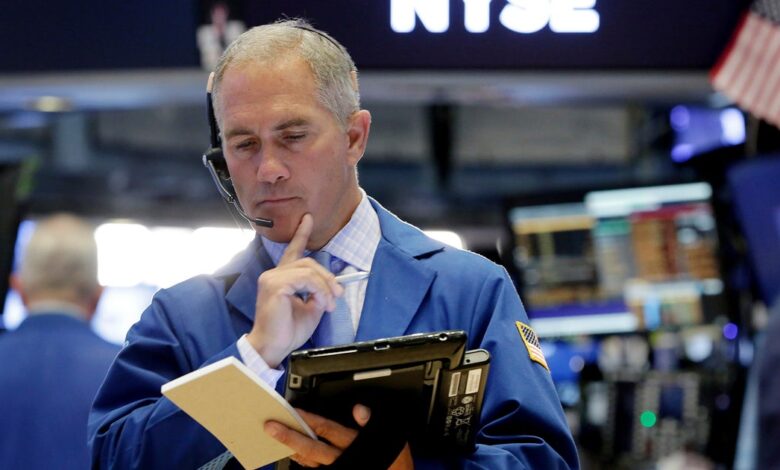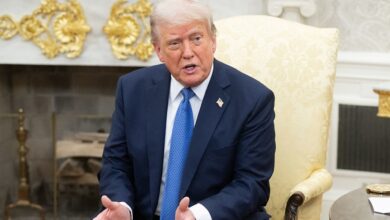Stock futures shed overnight gains, signaling weaker opening to trade

U.S. stock futures took a turn for the worse after initially showing gains in the early morning, slipping into negative territory just before the opening bell on Wall Street. This shift comes after a three-day relief rally driven by investor optimism that President Trump would ease tariffs on China and retain Jerome Powell as the chairman of the Federal Reserve.
As trading was about to begin, Dow Jones Industrial Average futures were down 196 points, or 0.5%, while S&P 500 futures dropped 17 points, or 0.3%. The Nasdaq Composite futures also fell by 0.4%. According to John Canavan, lead U.S. stock analyst for Oxford Economics, “U.S. equity index futures remained relatively quiet and range-bound throughout the night, but as U.S. traders entered the market, selling pressure increased. Despite this, the Treasury market remained strong, with yields holding steady near overnight lows.”
The decline in futures deepened around 6 a.m., coinciding with the release of President Trump’s interview with Time magazine, where he mentioned the possibility of maintaining tariffs on foreign imports at 50% as a “total victory” for the U.S. Furthermore, Trump hinted at striking 200 trade deals with other countries, adding to the market uncertainty.
The ongoing trade tensions and tariff implementations by the White House have contributed to market volatility, raising concerns about economic growth and impacting both consumers and businesses. In response to these developments, Alphabet saw a 5% surge in its stock overnight after reporting a 50% increase in profit for the first quarter.
Conversely, Intel experienced a 6.8% decline in its shares ahead of the market opening following the release of its first-quarter financial results for 2025. Intel’s Chief Financial Officer, David Zinsner, attributed the uncertainty in the current macro environment as a factor affecting the industry outlook.
In summary, the market landscape remains turbulent as investors navigate through trade negotiations, tariff implications, and corporate earnings reports. The impact of these factors on stock futures underscores the ongoing challenges facing the global economy. As the trading day unfolds, market participants will closely monitor developments in trade discussions and corporate performance to gauge the trajectory of stock markets.
This article was originally reported by The Associated Press and rewritten by Mary Cunningham for CBS MoneyWatch. Mary Cunningham is a seasoned reporter with experience at “60 Minutes”, CBSNews.com, and CBS News 24/7 as part of the CBS News Associate Program.





